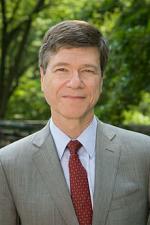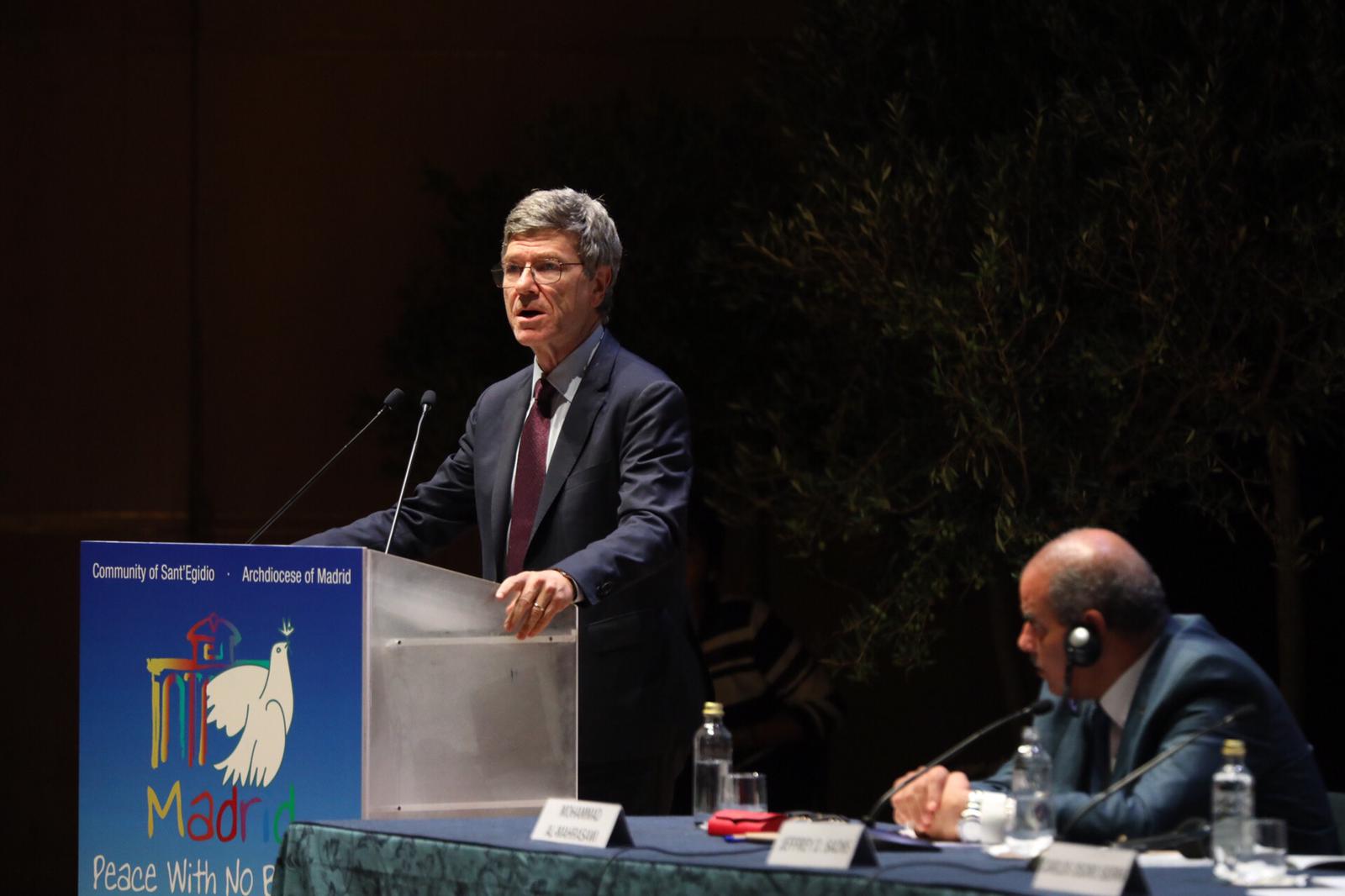
Jeffrey D. Sachs
Colombia University, Special Adviser to the United Nations Secretary Generalbiography
In his Inaugural Address nearly 60 years ago, President John F. Kennedy declared: “The world is very different now. For man holds in his mortal hands the ability to end all forms of human poverty and all forms of human life.” What was true then is even more starkly true today. We are rich enough and knowledgeable enough to end poverty and hunger, and to ensure that every child on the planet has access to a quality education.
Yet we are also threatening our very survival, not only through nuclear weapons as was already true in Kennedy’s time, but through climate change, pollution, and the mass destruction of other species, which is new to our time.
The Amazon rainforest is on fire, and so too is our politics. Too many leaders today are purveyors of hate, fear, greed, and corruption. Too many use the pretext of national identity as a bludgeon against the weak and vulnerable.
Yet we are here today not to plead with the hatemongers. We are here today to join together in the name of our common humanity. We are here to insist that humanity is endowed with reason, the reason that enables us to choose the common good.
Our reason can overcome war and prevent it in the future. We have wars in our time because of great power arrogance, such as when the United States launched an unprovoked war against Iraq, or sent the CIA to Syria to overthrow the Syrian Government, or when the US, France, and UK sent NATO bombers to topple the Libyan government. We have wars today because extreme poverty in a place like Yemen provokes desperation and creates a cauldron of strife, into which bigger powers pour their guns and bombs. We have wars today because droughts and floods made more frequent and intense by human-made climate change are causing crop failures, hunger, and mass migration, which then trigger new waves of violence.
And we risk new and even more devastating wars because the US President launches trade wars that create reprisals and escalations; deploys the power of US banks to create hunger and desperation in Venezuela and Iran to try to force those governments bow to his will; proposes to militarize space with a new US Space Force; withdraws from the Intermediate-Range Nuclear Forces Treaty; and proposes to launch a new generation of nuclear weaponry in violation of the explicit obligation of nuclear powers to nuclear disarmament under the Nuclear Non-Proliferation Treaty.
In earlier times, humanity was the pawn of tyrants and despots, of princes and kings, who sent men to battle and women and children to the sword. Yet we know better today that war is not our fate, and that peace and prosperity are within our grasp.
We are the heirs of Plato and Aristotle, who championed the gift of reason; of Jesus, who proclaimed that peacemakers are the children of God; of Immanuel Kant, who envisioned a union of republics to secure perpetual peace; of Franklin Roosevelt, who launched the United Nations after World War II to put Kant’s vision into effect; of John F. Kennedy and Nikita Khrushchev, who signed the Partial Nuclear Test Ban Treaty at the height of the Cold War, and thereby showed the path to peace; and of Martin Luther King, Jr., who reminded us that “the arc of the moral universe is long, but it bends towards justice.”
Let us therefore take our stand against unreason, ignorance, and fear. Let us take our stand against the arrogance of big powers and of petty despots. Let us reason together.
Here are some hard facts.
The world income this year is $90 trillion, more than $11,000 per person. Yet around a billion people still live in abject poverty. With a transfer of just 1% of the income of the rich countries to the poor countries, roughly $500 billion per year, we could end extreme poverty.
Global life expectancy is now 72 years, yet around 5 million poor children will die this year before their fifth birthday because their families and communities are too poor to keep them alive. With a transfer of just one-tenth of one percent of the income of the rich world, healthcare could be extended to those children, and most of those deaths could be averted.
The world has promised an education from pre-Kindergarten to upper-secondary school for every child on the planet, yet 260 million school-aged children are out of school. With just one-tenth of one percent of the income of the rich world transferred to the poor countries, we can fund classrooms and teachers for all of these children.
2,000 billionaires have a combined net worth of $10 trillion. The richest 15 people on the planet have $1 trillion of wealth. The income earned annually by these fifteen people alone could cover the financing gap for schooling the 260 million children. Jeffrey Bezos, Bill Gates, Bernard Arnault, Warren Buffett, Mark Zuckerberg, and others: you must act.
The United States spends more than $700 billion per year, $2 billion per day, on the military. Three days of military spending each year, or $6 billion per year, would bring malaria deaths to near zero. Five days of military spending each year, or $10 billion, would fully fund the Global Fund to Fight AIDS, TB, and Malaria. We say to the Pentagon, take a long weekend break, so that we can rid the world of these killer diseases.
The worldwide cost of armed conflicts, military expenditures, internal security expenditures, and personal security expenditures, exceeds $5 trillion per year, enough to end poverty, protect nature, and convert the world energy system to wind, solar, hydro, geothermal, and other zero-carbon sources. We stand with the Prophet Isaiah, who told us to beat our swords into ploughshares.
We are a rich world, but we have lost our bearings. We suffer, Pope Francis has told us, from the “globalization of indifference.” Yet Pope Francis not only described our fraught condition, but shined a light towards our salvation. He told us, in his magisterial encyclical Laudato Si’, that “Interdependence obliges us to think of one world with a common plan.”
Friends, we can forge that common plan. The tools are at hand.
We must start with the UN Charter, which calls on us to resolve conflicts through dialogue, negotiation, and mediation, not by threats or use of force at the whim of politicians.
We must build on the Universal Declaration of Human Rights, our universal moral charter, which recognizes political and civil rights, but also economic, social, and cultural rights.
We must achieve the United Nation’s Sustainable Development Goals, which recommit our generation to the economic rights of the Universal Declaration.
And we must fulfill the Paris Climate Agreement, to keep planetary warming to below 1.5 degrees Celsius, lest we set loose the disaster of runaway climate change.
Next week the world’s governments will meet at the United Nations General Assembly to assess progress towards the Sustainable Development Goals and to hasten global action on climate change. We are far behind schedule, since we are losing time to inaction, corruption, and greed. In December the world’s governments will meet in Santiago de Chile to embolden steps toward climate safety. In 2020, the same governments will convene in Kunming, China to address the urgent crisis of 1 million species at risk of extinction because of human activity such as deforestation in the Amazon. Our job is to join in practical action, and to hold our governments to account, to stay true to their word and stay clear of the corruption and lies that too often permeate our politics.
We have the means, the wealth, the technology, the know-how, and the need to accomplish all of the goals and promises we have set. In the names of all religions, which each speak for our common humanity, we are here pledge our God-given reason to pursue these aims, and to chase away the greedy, the arrogant, and the wicked.
Let us join faith and reason, theologians and scientists, priests and philosophers, enlightened politicians and informed citizens, to an ethics of the common good.
Let us say to the United States: end the sanctions that are causing suffering and hunger to the peoples of Venezuela and Iran, refrain from a new arms race in space and nuclear weaponry, and respect the UN Charter.
Let us say to the rich world: fulfill your commitment to give a mere 1 percent of your national income, by official and private aid, to meet the urgent needs of the poor in line with the Sustainable Development Goals.
Let us say to the powerful corporations of the world: you are responsible to all stakeholders, not just to your owners, and your first responsibility is to do no harm, to your workers, the communities where you operate, your customers, or the planet itself.
Let us say to the billionaires of the world: the world belongs to everyone, not just to you. You must use your trillions of dollars of wealth to succor and lift the poor, the hungry, and the sick.
Let us say to the politicians who misuse religion: do not try to divide us or set us against each other, since the word of God calls for universal justice and universal mercy.
Let us remember the wisdom of Pope Paul VI in Populorum Progressio a half century ago, who declared that development is the new name for peace. We can say in our time that sustainable development is the new name for peace.
In his last speech to the United Nations, just weeks before his assassination, President Kennedy reported on the signing of the Nuclear Test Ban Treaty that he had done so much to achieve. He told his fellow leaders that “the clouds have lifted a little, so that new rays of hope could break through.” And he spoke these magnificent words to the world leaders:
“Archimedes, in explaining the principles of the lever, was said to have declared to his friends: ‘Give me a place where I can stand--and I shall move the world.’” My fellow inhabitants of this planet: Let us take our stand here in this Assembly of nations. And let us see if we, in our own time, can move the world to a just and lasting peace.”
For all of us here in Madrid, grateful to be brought together by the wonderful Community Sant’Egidio and the wonderful people of Spain, let us take our stand here, in this assembly of religions, to do our part to move the world to sustainable development and the common good.
